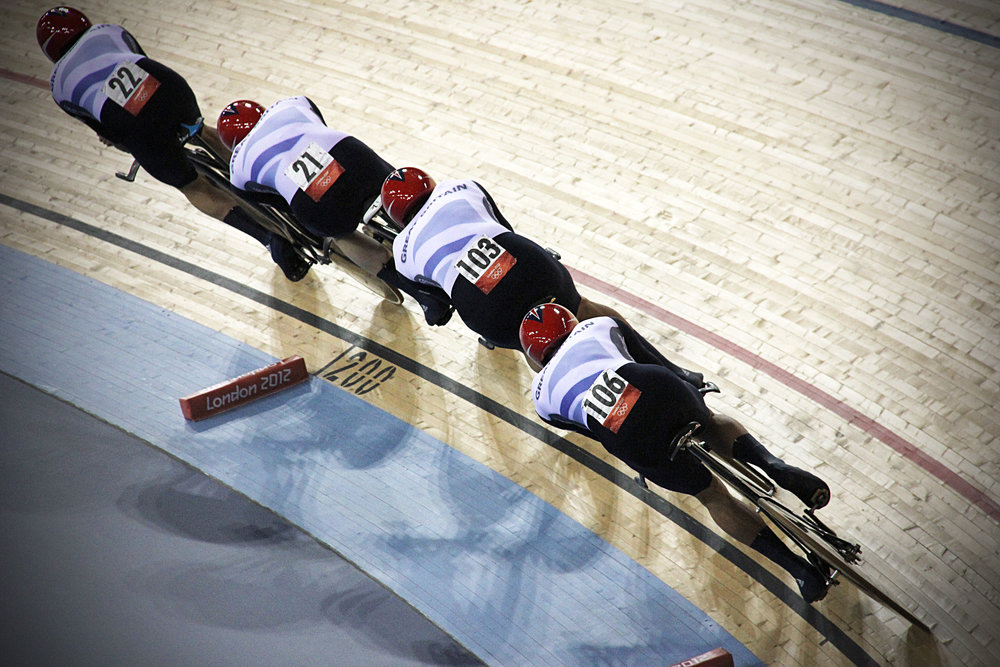In 1999 the British Olympic Association (BOA) trademarked the name Team GB and branded it upon the Great Britain and Northern Ireland Olympic team. It was primarily a marketing strategy but it also served to give an otherwise disparate group of athletes a greater sense of unity. According to the (then) marketing director of the BOA: "Come Sydney 2000 we had Team GB everywhere. When the athletes arrived, they saw that and they knew they were part of a bigger team, not just a group of athletes or swimmers. That had a positive effect on everyone."
Perhaps it did. But according according to Katzenbach and Smith in The Wisdom of Teams, a real team this group of Olympians could never be.
A real team is “a small number of people with complementary skills who are equally committed to a common purpose, goals, and working approach for which they hold themselves mutually accountable”. No doubt the overarching goal of Team GB is to bring home as many medals as possible, but it’s a stretch to think that athletes in different disciplines are actually working together to achieve this. That individuals could genuinely be held accountable for the results of their compatriots in a different sport is even harder to accept. The reality is that the performance of the “team” as a whole is little more than a “sum of ‘individual bests’”. Katzenbach and Smith have a better classification for this kind of arrangement called the working group:
“...working groups come together to share information, perspectives, and insights; to make decisions that help each person do his or her job better; and to reinforce individual performance standards. But the focus is always on individual goals and accountabilities. Working-group members don’t take responsibility for results other than their own.” Despite its new name, Team GB is far better described as a working group, though it’s hardly worth to remark. Working Group GB just doesn’t have quite the same ring to it after all.
There are times, however, when it’s worth being clear about the difference.
See the wood through the trees
“Groups do not become teams simply because that is what someone calls them. The entire workforce of any large and complex organization is never a team, but think about how often that platitude is offered up.” It would appear the distinction between working groups and teams in the business world is poorly understood. Those in charge of creating organizational groups like to form management teams, executive teams, leadership teams, and other varieties, but they really use the word in place of the working group and, assuming they know the difference between the two, do not expect real team behavior.
Some treat the notion of the team as though it were the key to raising productivity in all situations. Cries of “we’re all one team” can be heard in one form or another in management pep talks that intend to inspire and motivate a lacklustre group, but such utterances are misplaced among coworkers that have little reason to collaborate in this way. Of the many ways to motivate individuals, camaraderie and a sense of duty to one another has its place but it’s not always appropriate.
The bottom line is that working groups sound neither appealing nor inspiring in the business world either; teams are much better. Thus, everyone is in a team and teams are everywhere.
But of course there is nothing inherently positive about being a team nor inherently negative about being a working group. A team is only desirable when being one would yield a significant performance gain over not being one. One should not underestimate the time and effort it takes to forge and maintain real teams. All else being equal, a working group can be the optimal structure if that’s what the nature of the work dictates.
Coercing individuals into a team when a working group is more suitable is, at best, a waste of effort. However, failing to recognize when a group should be a team but isn’t one is of much greater concern. Real teams require a nontrivial amount of energy to realize and sustain, not only from the individual members themselves but from those forming and supporting them. It is much more likely that the energy needed to turn a working group into a team and maintain it thereafter will diminish over time, especially when there are few benefits to be gained for the effort. When this is the case, individuals will naturally return to a lower maintenance structure, probably a working group, which can perform just as well, if not better, than an ill-suited one. But failure to form a team when one is required is to risk total failure on the one hand, or the massive performance upside a real team can offer on the other.
“Teams” become ubiquitous in organizations where the “team” label is too liberally applied making it difficult to identify which teams are real and which are but teams in name.
Restoring the meaning of the word "team"
What is a team and do I need one? Every manager should be clear on this.




